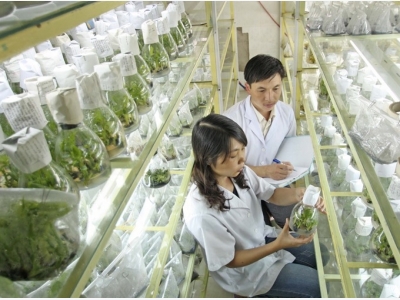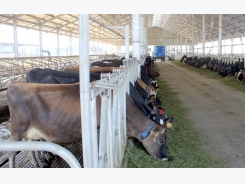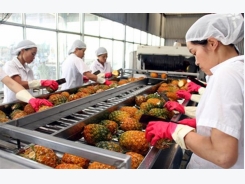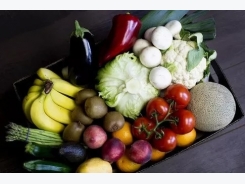Hi-tech agriculture needs better credit policies

A high-tech nursery in Lâm Đồng Province. – VNA/VNS Photo Nguyễn Dũng
HÀ NỘI – Better credit policies and higher consumption of farming products are necessary to ensure efficient use of funds borrowed for high-tech agricultural projects, experts said at a seminar in Hà Nội yesterday.
These are tasks for the Government and enterprises respectively, they added.
The seminar was organised by the Việt Nam Farmers’ Association, the State Bank of Việt Nam and the Ministry of Agriculture and Rural Development.
According to the State Bank of Việt Nam (SBV), total outstanding loans for hi-tech agriculture have reached nearly VNĐ32.34 trillion. The loans have been given to 4,125 customers, 3,957 individuals and 168 enterprises.
Nearly VNĐ27.74 trillion (about 86 per cent) of these loans were given to high-tech agricultural projects and the remaining VNĐ4.602 trillion to clean agriculture projects. There was no bad debt, the central bank said.
A number of large-scale high-tech projects have begun operations, involving the breeding of cows, horticulture and fruit and vegetable exports.
The Bank for Agriculture and Rural Development has committed to a VNĐ50 trillion soft loan package for hi-tech and clean agriculture programmes and projects. Loans under this package will be given at interest rates 0.5-1.5 per cent lower than normal lending rates.
Despite this, the reality was that encouraging high-tech and clean agriculture was fraught with risk, especially without stable consumption markets, the experts said.
They added that there were not enough tools in the country to distinguish and protect high-tech and clean agriculture projects from normal ones.
There was also a lack of guidance on the granting of ownership certificates for assets on agricultural land, including greenhouses and other facilities, the seminar heard.
Nguyễn Đức Hưởng, chairman of the Lien Viet Post Commercial Joint Stock Bank (LienVietPostBank), said that hi-tech agriculture was often associated with high production costs and there was not enough consumer confidence in clean farming products.
He also noted that investment in agriculture carried greater risks because it depended on many uncertain factors like the weather.
The State should have policy incentives for businesses to consume farmers’ products, Hưởng said.
He also said co-operation among farmers, and between farmers and enterprises would help them expand production, improve processing and consumption, thereby fostering stable production, increase in product quality and the building of recognisable brands.
Lê Thành, Director of the Institute of Organic Agriculture Economics and General Director of the Kết Nối Xanh Joint Stock Company, said that hi-tech agriculture was a mode of production, not an economic model, so it must be closely linked to new value chains.
For instance, "if an enterprise has an investment of VNĐ3-4 trillion for high-tech agriculture projects without a market, this will turn into a debt for banks, businesses and investors," he said.
"The value chain will only succeed if farmers can frequently access transparent, accurate, updated market information," he said.
Thành also said the State should pay attention to building mechanisms and creating conditions for investors for developing supply chains. This would create the benefits of tax collection and job creation, he added.
Phạm Thị Huân, General Director of Ba Huân Co, Ltd, said many businesses wanted to produce clean farm products but they couldn’t afford the large capital that was required.
The State should, therefore, issue support policies for clean agriculture production and improve the quality of agricultural development.
To support the development of adequate distribution systems, the agriculture ministry co-operated with other agencies and sectors to develop policies on credit, commercial infrastructure, land, tax, production, processing and post-harvest preservation, said Hoàng Anh Tuấn, deputy director of the Ministry of Industry and Trade’s Domestic Market Department.
Economist Võ Trí Thành said the market would eventually promote high-tech agricultural production, but the initial development phases would carry risks and instability.
To develop hi-tech agriculture, the state should also perfect the insurance schemes for the sector. This would be a key factor in having businesses and farmers share risks inherent in agricultural production, he said.
Có thể bạn quan tâm
Phần mềm

Phối trộn thức ăn chăn nuôi

Pha dung dịch thủy canh

Định mức cho tôm ăn

Phối trộn phân bón NPK

Xác định tỷ lệ tôm sống

Chuyển đổi đơn vị phân bón

Xác định công suất sục khí

Chuyển đổi đơn vị tôm

Tính diện tích nhà kính

Tính thể tích ao hồ



 Hi-tech agriculture encounters multiple obstacles
Hi-tech agriculture encounters multiple obstacles  Vietnam ships litchi to many markets
Vietnam ships litchi to many markets